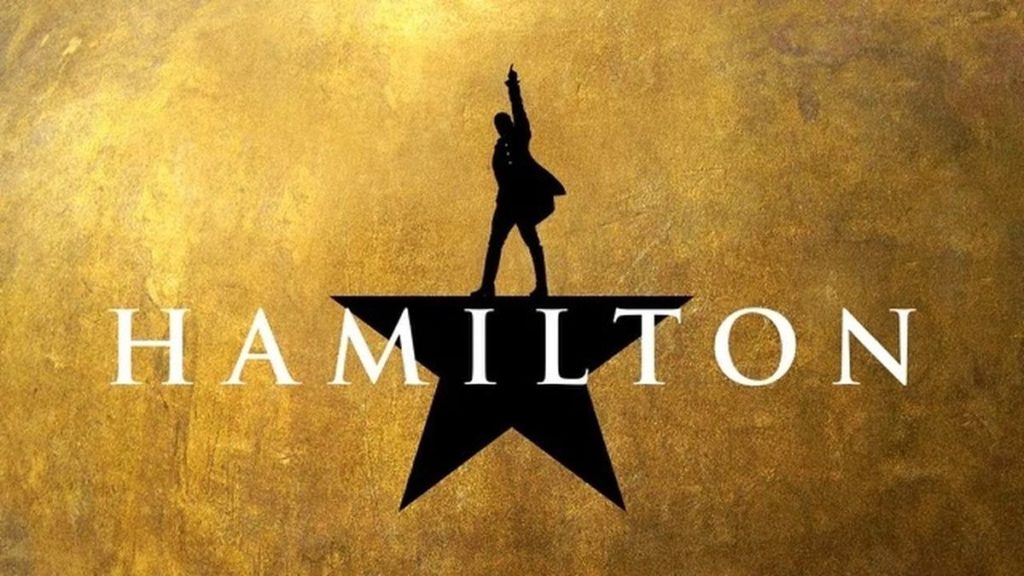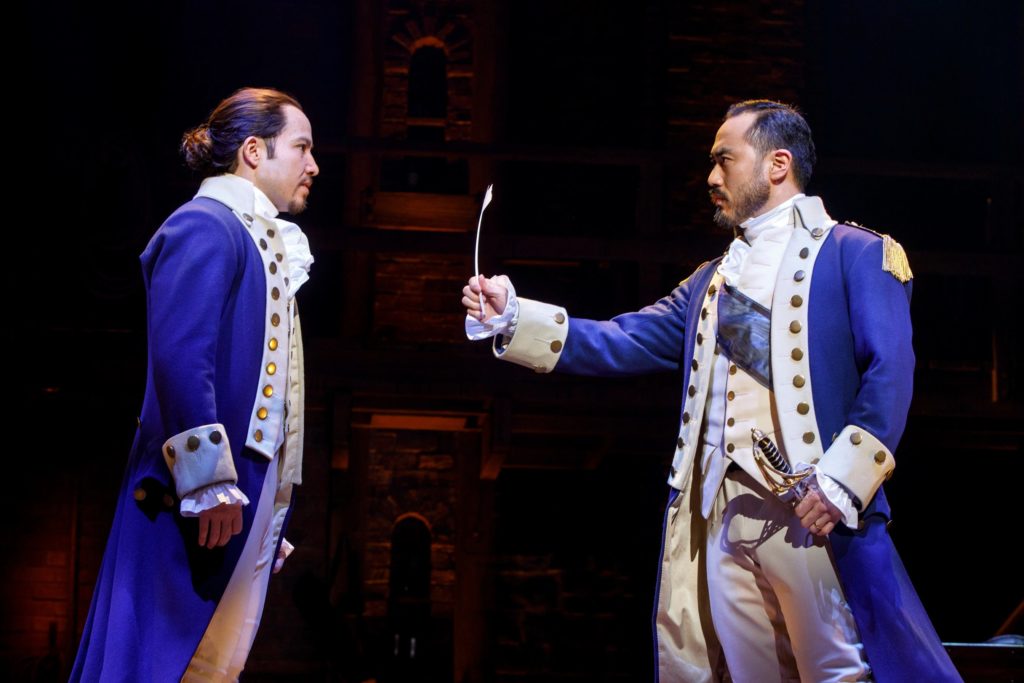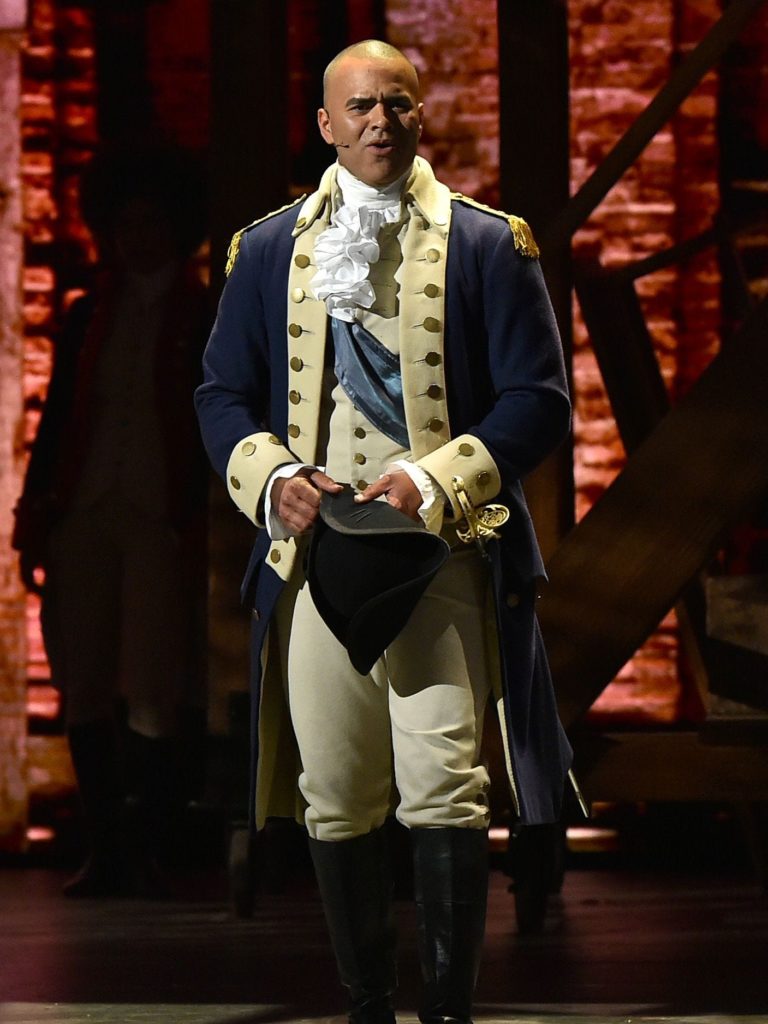
As the cancel culture steams down the tracks seeking to destroy a history that can’t be changed, the movie production of the highly acclaimed Broadway hit Hamilton has landed squarely in its crosshairs. Is the assassination attempt justified or are the cancel critics throwing away their shot?
The musical is based on the life of Alexander Hamilton, a Revolutionary era figure instrumental in the founding of America and who died tragically in an 1804 duel with Aaron Burr. The cancel critics are not addressing the quality of the production, but the quality of the man and vilifying the production for, in their perspective, advancing the views of a white elitist who at best did little to end slavery, and at worst may have owned slaves.
I watched Hamilton Friday night, mostly at the urging of my daughter, but I was also curious to understand if there is any validity to the cancel cultist’s arguments (there isn’t). Here are four impressions I have after watching the production, and if you haven’t seen it, here’s why I believe you should.
You should watch it to appreciate our complex history. Alexander Hamilton is one of the most complex people in American history. His birth was the result of sordid circumstances, his early life difficult and his adult life accomplished and complicated. There was most certainly an inferiority complex pitted against the aristocracy of Virginians Thomas Jefferson and James Madison, and to some degree John Adams of Massachusetts. Hamilton was one of America’s first prominent self-made men, rising to great heights before his life was cut short at age 47 by Burr’s bullet.

Like all of the Founding Fathers (and like us as well) he was a flawed individual. Slavery was a huge issue of that day and greatly influenced the ratification of The Constitution. While the stage production touches on slavery, it doesn’t major on it. However, It wasn’t intended to be a commentary on slavery but a biographical sketch of an interesting American life. Was slavery wrong? Absolutely. But to tell the story the cultists want, Hamilton’s creator, Lin-Manuel Miranda, would have to have written a different musical all together. Hamilton restates the vision that “all men are created equal” and should be a reminder of our historical potential yet to be fulfilled.
You should watch it because of the irony. While the cancel cultists are shouting down the white elitism of the Founders, the Hamilton cast is comprised of mostly black Americans and people of other ethnic backgrounds. The only white character among the main cast is King George III. I found it beautifully ironic that a story of our country’s founding that was originally dominated by whites is told by a color palette of people representing the diversity of the nation we’ve since become.
George Washington is played by black actor Christopher Jackson, who said he had to reconcile the fact that Washington owned slaves while also trying to understand the core of Washington’s commitment to a new country. Maybe we should all wrestle with the obvious conflicts within our Founder’s – and within ourselves – and separate the noble from the detestable.
Immigration also gets a nod in Hamilton, such as when Hamilton and the Frenchman, Marquis de Lafayette, sing “Yorktown.” In their exchange, the two are discussing the fact that they are both commanding in battle and sing, “Finally on the field. We’ve had quite a run; Immigrants, we get the job done.” Hamilton grew up a poor orphan on the Caribbean Island of St. Croix. The song is an acknowledgement that we as Americans are all immigrants and immigrants have made – and continue to make – significant contributions to our country’s progress.

However, there is also the derisive. In the song, “Washington On Your Side,” Jefferson, Madison and Burr, assail Hamilton’s character, and with disdain sing, “This immigrant isn’t somebody we chose.
This immigrant’s keeping us all on our toes.” It is unfortunate that the prejudice that blinded the Founder’s still blinds us today.
You should watch it because it is amazing art. Hamilton in total is almost too much to take in on one viewing. The fact that Miranda squeezed 28 seminal years of American history into a two-and-a-half hour show without it feeling rushed or cramped is a feat in itself. Add the volumes of original music he wrote, the extraordinary talent of the actors, the set and costume design, choreography, musicians, and the ability to pull all the elements together live, and Hamilton is high art that can, and should, be appreciated on many levels.
You should watch it so you determine not to “waste your shot.” Burr and Hamilton’s adults lives were fatefully and inextricably intertwined. Early in their relationship, Burr warns Hamilton and his friends to be non-committal to taking sides; to hedge their bets and says, “Geniuses, lower your voices, you keep out of trouble and you double your choices.” Hamilton responds incredulously, believing you have one life to live for something that matters and sings, “I’m not throwing away my shot.” It is a recurring line throughout the production as Hamilton throws himself totally into the formation of America. Every step is an opportunity to rise higher by not “throwing away [his] shot.” Of course the lyric is also a foreshadowing to the most profound occasion when Hamilton did “throw away his shot,” and that was the fatal duel with Burr when he fired into the air while Burr’s shot mortally wounded Hamilton.
The take away is not to “waste your shot.” You’ve got one life to live, so what are you going to do with it?
Miranda does take some artistic liberties throughout Hamilton, but overall it may unfortunately be the closest many come to understanding a key figure in the founding of America. Far from being the anathema the cancel cultists would have you believe it to be, it is truly a worthwhile feature to watch.
Art often shows us the challenges facing our culture in ways that resemble parables. If we are wise, we will listen with ears that hear, and watch with eyes that see.
Polly House
Great observations, Chris. I’ve seen it twice on stage and now three times on Disney+, and each time l have seen things I missed in previous shows. When studying American history in school, I saw the Founding Fathers as, well, statues. They all stood up dressed in their fancy suits, just looking regal. But this play, wow, flaws, confusion, contradictions. These men were human!